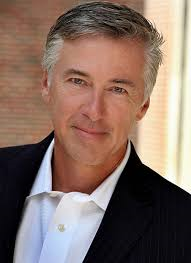As a part of our talent acquisition engagements, we ask our clients how they define “top talent” and how they would assess those traits in the interview process. Reflecting on the insightful comments we hear every day, we thought there would be great value in a new blog in which senior executives/thought leaders share their “Take on Talent.”
This is the eleventh in a series of blogs/interviews with senior executives who are thought leaders in the areas of Talent Acquisition, Career Development and Leadership who will share their perspectives on this ever present question.

Monty Hamilton is Chief Executive Officer of Rural Sourcing Inc. (RSI) and is responsible for the company’s strategic direction and growth, including the launch of 10 new development centers with 2,000 colleagues across low cost of living, high quality of life locations in the United States. This is his second entrepreneurial startup venture after leaving Accenture in 1995. Monty joined together with four other colleagues to build Clarkston Consulting where he was instrumental in growing Clarkston into a global strategic and systems integration firm with offices across the US and Europe.
He is a sought after speaker on outsourcing, domestic sourcing and workforce development topics and has recently been featured on CNBC, BBC, NPR radio and at various industry events. His achievements were recognized recently by being named as a regional finalist for the 2015 Ernst & Young Entrepreneur of the Year Award.
Monty holds an M.B.A. from the Cox School of Business at Southern Methodist University and a B.B.A. in business from Millsaps College.
Please share with us the top five characteristics (in priority order, first to fifth) of the most talented people you have encountered during your career, and your definition of each.
The top 5 characteristics of the most talented people I’ve had the pleasure of knowing include the following:
- Hungry
- Passionate
- Naturally Curious
- Great at Listening
- Humble
I have to admit that I’ve been unduly influenced by a recent book I read by Patrick Lencioni, called “The Ideal Team Player.” Lencioni is the same author who wrote, “The 5 Dysfunctions of Teams.” He argues that the 3 key attributes to a team player are Hungry, Humble and People Smart. Two of these three make it onto my list.
There is no argument from me that being Hungry is an important virtue. This may be a reason why I have a propensity to hire individuals with competitive team sports backgrounds. The need to always be striving, improving, keeping score and competing makes for high energy colleagues.
Next on the list is Passion. People who are genuinely passionate about something greater than themselves not only have extreme focus but they realize that everyone and every situation is an opportunity to lift others up to help them achieve their own greatness. I’ve been fortunate to have had coaches, mentors and colleagues (but especially coaches) who were naturally gifted in this area of seeing and expecting greatness from those around them.
Third is that I strongly believe that you need to be naturally Curious. Whatever technical skills we learned or mastered yesterday are probably not going to be useful for very long in today’s ever changing environment. So having someone who is perpetually asking questions, naturally wants to learn or just needs to find out what’s around the next bend keeps everyone on their toes. I’ve found that these individuals are great problem solvers in the workplace
The fourth attribute on my list is being a Great Listener. Some may argue that this is the same as Lencioni’s People Smart but I think that there’s more to it. I consider a great listener as someone who first asks great questions to illicit valuable responses and is then able to read their audience and their emotions.
Last but not least is humble. These are the people that really make a team effective because they work towards the greater good and not necessarily in promoting themselves.
How do you communicate these characteristics to your HR and senior management team?
In order to communicate these traits to our senior leadership team we talk openly about what works within our culture and what are the things that are a threat to that culture. We also engage in dialogue about what it is that causes us as a team to want to spend time with each other both in and outside of work. If you can develop that type of relationship with your colleagues then you are on the right track.
How do you handle challenges to the existing culture by talent you have brought in?
Handling challenges to an existing culture from new hires can be tough. First you have to ask yourself “do the challenges represent things you actually want to change about the culture or are they things that are sacred?” If they are things that are sacred and jeopardize destroying the culture then you have to ultimately rid yourself of the threat. If you can attract and retain people who embody the type of culture you are building then you’ll build a sustainable business. However, making sure to communicate these traits over and over again as you grow the business is critical to ensuring that your culture will be the kind of culture you’ll be proud of.




